Why All Things HVAC is the Best Choice for Your HVAC Needs
If you’re looking for quality HVAC services, look no further than All Things HVAC. We are a small business operating out of Doylestown, PA and we serve clients in the surrounding areas. We are family owned and operated, and we take pride in raising our children in this great community. Our goal is to provide top quality client service with competitive pricing. We excel in craftsmanship and have excellent technicians and support staff to help families stay comfortable all year long. We strive to find the best possible solution to improve your home’s climate, indoor air quality and energy consumption with our HVAC services.
All Things HVAC is the best choice for your heating and cooling needs, and you can know this by our great reviews! Just ask any of our customers how they felt after using our services, and they will tell you that we treated them as though they were our own family.

When we begin a job at a customer’s home or business, it is our goal to make sure they are receiving professional service that we can be proud of. We take time to listen to any concerns that may come up along the way, and try our best to work within the customer’s desired budget.
When performing our job, we use only the highest quality parts and equipment, which helps to ensure our customer’s unit is running smoothly when we leave. The safety of our customers is also one of our top concerns, and we always follow standard industry practices to ensure this.
When you call a heating and cooling professional, you don’t want to have to worry that you will be taken advantage of. Some HVAC companies are only concerned with the bottom line. They will do everything they can to try to sell you things that you do not need. When you call All Things HVAC, you can trust you are calling a company who is focused on accomplishing our customers HVAC goals in the most cost effective way possible. We want to leave you feeling that you can call us anytime in the future with a heating or cooling need, and be able to trust that we will do the job right.
Some of the services All Things HVAC provides include: air conditioning installation, replacement, and repair services; heating (heat pump) installation, replacement, and repair; furnace installation, replacement, and repair; HVAC maintenance; emergency services; duct cleaning; and air filtration. Contact us today to schedule a consultation. Thank you for choosing All Things HVAC!
Should You Replace or Repair Your HVAC System?
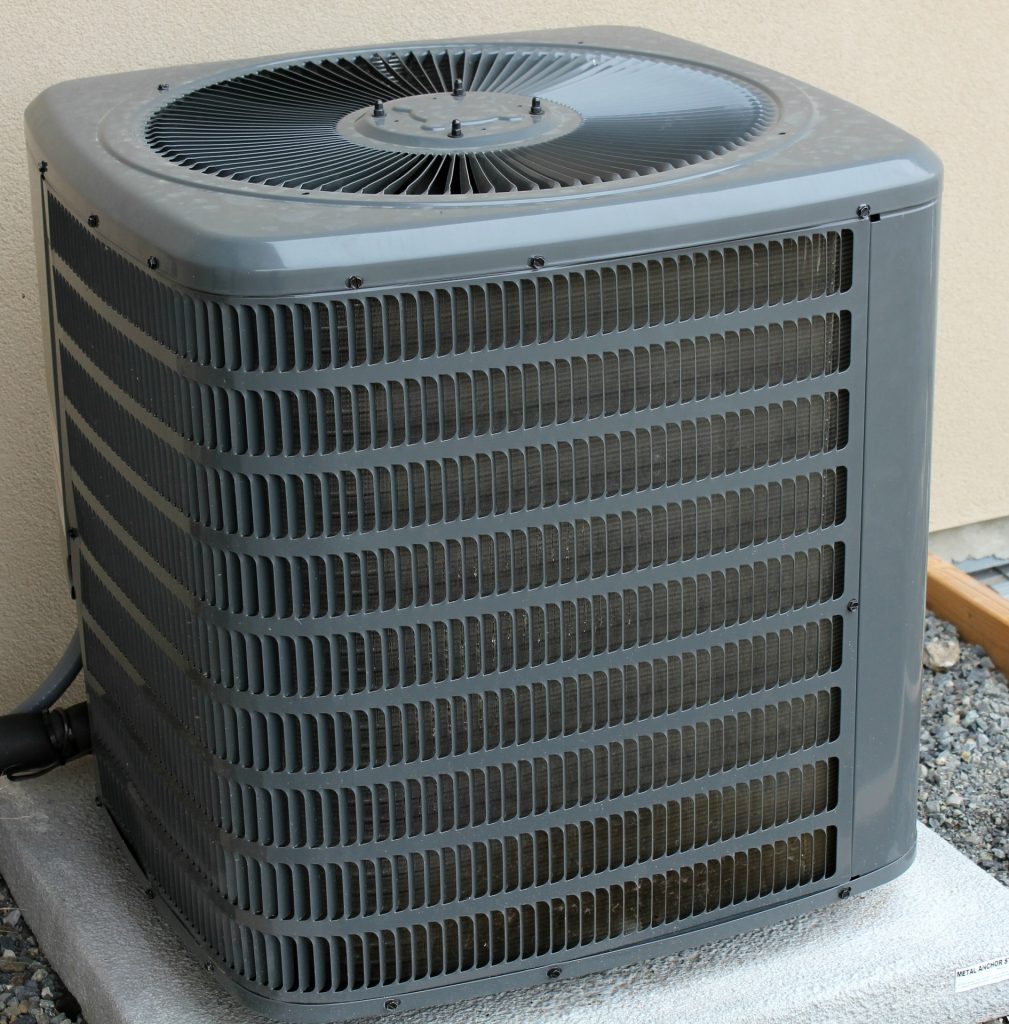
If your HVAC system is on the fritz, you may be wondering whether you should repair it or replace it. It can be difficult to decide, especially since both options have their pros and cons. In this blog post, we will help you make the decision by outlining the factors you need to consider.
One of the main factors you need to consider is the age of your HVAC system. If it is relatively new, it may make more sense to repair it since replacement can be quite expensive. However, if your HVAC system is older, it may be less efficient and thus not worth repairing. Most HVAC systems have a lifespan of around 15 to 20 years. If your current system is under 10 years old, replacement may be premature. If your system has been given proper routine maintenance, a simple repair may be all that is needed, which leads us to our next point.
Another factor to consider is the severity of the problem. If the problem is minor, such as a broken fan, then repair may be the best option. However, if the problem is major, such as a cracked heat exchanger, which can be a serious safety concern, then replacement may be necessary.
If you find your system is not running as efficiently anymore and you are constantly having to make repairs, this may be another sign that it is time to replace the system. An inefficiently running system may end up costing you more money in the long run.
Finally, you need to consider the cost of repairs versus replacement. In some cases, repairs can be quite expensive, and not worth doing if replacement would be cheaper in the long run. However, this is not always the case, so you will need to get estimates from qualified HVAC professionals to make a decision.
If you are still unsure whether to repair or replace your HVAC system, we recommend talking to a qualified professional who can help you assess your specific situation and make the best decision for your needs. With their help, you can be sure that you are making the right choice for your home or business. Thanks for reading! We hope this was helpful. Please feel free to share it with anyone who may find it useful. Have a great day!
Why Heil equipment is an Excellent choice for your home or business
If you’re in the market for a new air conditioning system, you may be wondering if HEIL equipment is a good choice. In this blog post, we’ll discuss some of the benefits of using HEIL systems to cool your home. HEIL equipment is known for its quality and durability, and it’s backed by a strong warranty. Plus, HEIL systems are designed to save energy, which can help reduce your monthly utility bills. If you’re looking for an efficient and reliable air conditioning system, HEIL is definitely worth considering!
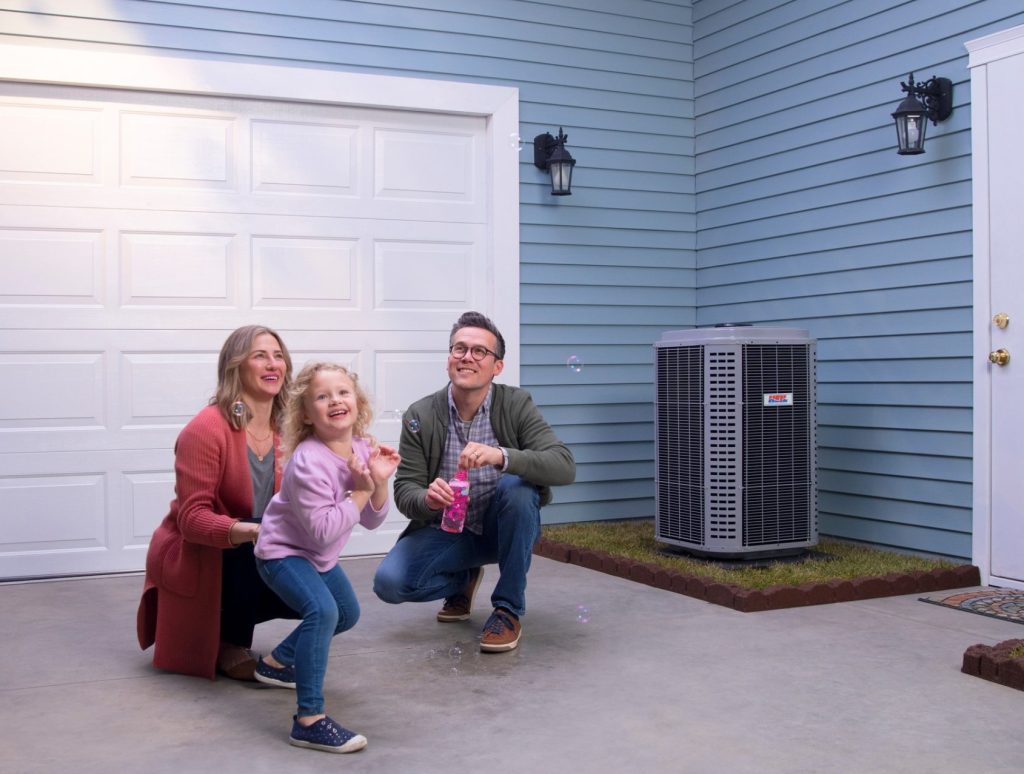
HEIL’s selection of air conditioners is second to none, with over ten models to choose from, originally in three different series—Performance, QuietComfort, and QuietComfort Deluxe. Heil recently changed the Deluxe series to the Ion series, and combined the QuietComfort and Performance series into one, under the Performance name.
Heil’s HVA9, with a SEER 19, is one of the company’s most popular models, and for good reason. This premium air conditioner features Heil’s Ion System Control with Wi-Fi, which allows you to control the unit from anywhere in your home. The unit includes a variable-speed fan and five-stage variable-speed compressor for perfect temperature and humidity control. The SmartSense technology provides for incremental adjustments so that indoor temperatures remain consistent. Best of all, the HVA9 is Heil’s quietest model, operating at just 56 decibels. So you can enjoy cool, comfortable air without any unwanted noise.
If you’re looking for an air conditioner that’s both efficient and affordable, Heil’s Performance series is definitely worth considering. These units are designed to save energy without sacrificing performance, and they come in a variety of sizes to suit any home.
The Heil unit you ultimately choose will depend on your particular situation and needs. Heil’s Performance and Deluxe air conditioning series offer different features to appeal to a range of customers. The Ion series offers higher SEER ratings, two-stage and variable speed compressors, WiFi thermostat connectivity, much lower noise levels and a no-hassle replacement warranty. This makes it the ideal choice for those who want the best performance from their air conditioner. The Performance series offers a more basic set of features, but still provides good value for money. It is perfect for those who do not need all the bells and whistles of the Ion range.
Both series are backed by Heil’s reputation for quality and reliability, so you can be sure that whichever you choose, you will be getting a great air conditioner.
The 14 SEER Air Conditioning Unit vs. 16 SEER Air Conditioning Unit: What’s the Difference?
If you are in the market for a new air conditioning unit, you may be wondering if you should buy a 14 SEER air conditioning unit or a 16 SEER air conditioning unit. Both units have their pros and cons, but which one is the right choice for you? In the following post, we will discuss the differences between the two types of air conditioners, and hopefully help you in deciding which one is right for your home.
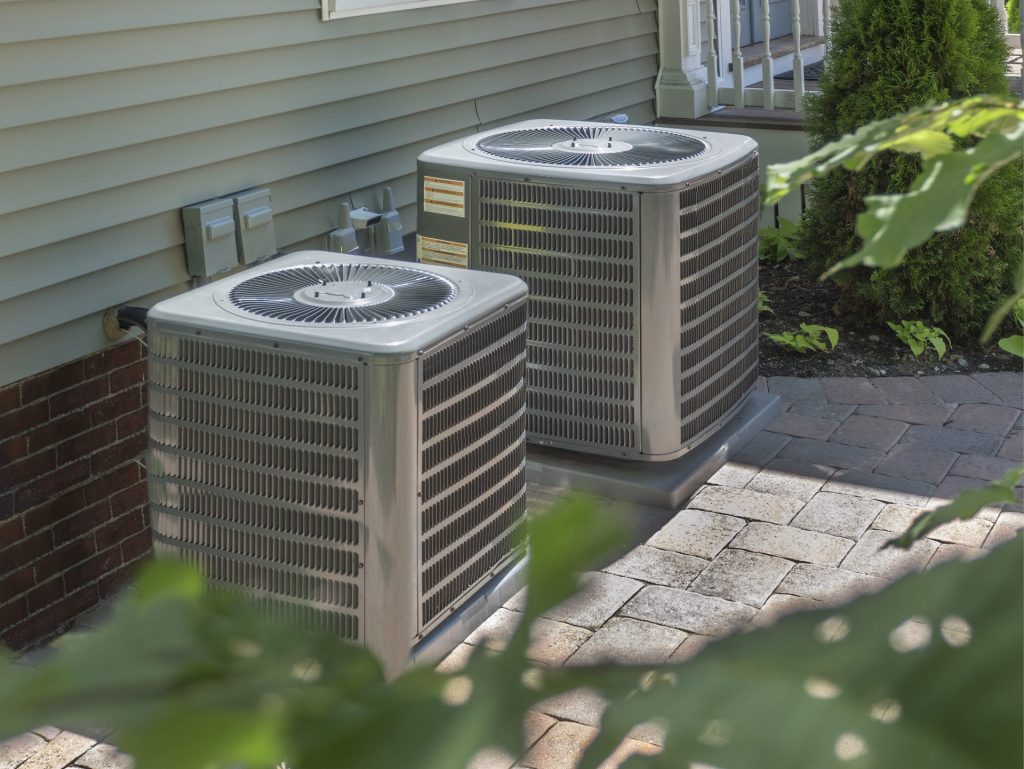
The first thing you need to know is that Seasonal Energy Efficiency Ratio (SEER) is a measure of how much cooling your air conditioner can provide per dollar of energy it uses. A higher SEER rating, means a more efficient air conditioner.
A 14 SEER air conditioning unit has an efficiency rating of 14. This means that for every dollar you spend on energy, you will get 14 units of cooling. A 16 SEER air conditioning unit has an efficiency rating of 16. This means that for every dollar you spend on energy, you will get 16 units of cooling.
So, what does this mean for you? If you live in an area with very hot summers and high electricity prices, a 16 SEER air conditioner will save you money on your energy bills. However, if you live in an area with mild summers and low electricity prices, a 14 SEER air conditioner may be the better choice for you.
Another notable difference is the type of compressor that each unit has. 14 SEER air conditioners have a single-stage compressor while 16 SEER units have a two-stage compressor. The difference in compressors means that 14 SEER units can only operate at one speed, while 16 SEER units can operate at two speeds. This allows the 16 SEER unit to better regulate the temperature in your home, as it can run at a lower speed for most of the time and only ramp up to a higher speed when needed. Additionally, the two-stage compressor also makes the 16 SEER unit more energy efficient than the 14 SEER unit.
Something else to consider is the upfront cost of the unit. A 14 SEER air conditioner will typically cost less than a 16 SEER unit. If you are on a budget, this may be the deciding factor for you.
At the end of the day, there is no right or wrong answer when it comes to choosing between a 14 SEER air conditioning unit and a 16 SEER unit. It all depends on your specific needs and situation. We hope that this blog post has provided you with a better understanding of the differences between these two types of air conditioners, and has helped you make an informed decision about which one is right for your home.
The Benefits Of Installing A Smart Thermostat

A smart thermostat can save you a lot of money on your energy bill. In fact, many people report saving up to 30% on their energy costs after installing a smart thermostat. But that’s not the only benefit! Here are 10 amazing benefits of owning a smart thermostat:
You can control your smart thermostat from anywhere.
Did you forget to turn off the AC before you left for work? No problem! You can easily log into your smart thermostat’s app and turn it off from there.
You’ll never have to worry about coming home to a cold house again.
If you have a smart thermostat, you can set it to start heating (or cooling) your home a few minutes before you get home. So no matter what time of day it is, you’ll always come home to a comfortable temperature. It air conditioning at its best.
You can save money on your energy bill.
As we mentioned before, one of the biggest benefits of owning a smart thermostat is that you can save money on your energy bill. Smart thermostats are very efficient and can help you slash your energy costs by up to 30%.
You can get more accurate temperature readings.
Smart thermostats are equipped with sensors that can detect the temperature in different parts of your home. This means that you’ll always get an accurate reading, no matter where you are in the house.
You can set custom schedules.
Is there a particular time of day when you’re always home? Or do you have a regular routine? You can easily program your smart thermostat to match your schedule, so it’s always comfortable when you need it to be.
You can receive alerts if something is wrong.
If your smart thermostat detects a problem, you’ll be the first to know. You can receive alerts via text, email, or push notification so you can take action right away.
You can monitor your energy usage.
Want to see how much energy you’re using? With a smart thermostat, you can easily track your HVAC system usage and find ways to save even more money.
You can control other devices in your home.
Many smart thermostats are compatible with other devices in your home, like lights and security systems. So you can easily control all of your devices from one app.
You might qualify for a rebate.
If you live in certain states or utility territories, you might be eligible for a rebate when you purchase a smart thermostat. Check with your utility company to see if you qualify.
These are only some of the great benefits that come with owning a smart thermostat! If you’re looking for an easy way to save money and increase comfort in your home, then consider investing in one today. You won’t regret it!
Is Your HVAC System the Right Size for Your House or Business?
Most newer houses have a properly sized HVAC unit, but if you live in an older home, it’s possible that yours is the wrong size. Here are some signs that your HVAC unit may be the wrong size:
– Your energy bills are higher than usual.
– Some rooms in your house are too hot or too cold.
– Your HVAC unit is always running, but your house never feels comfortable.

When sizing an HVAC unit, there are a few factors you need to take into account. The climate of the area and the size of the building are both important considerations. In this blog post, we will walk you through how to size an HVAC unit for your home or business. We will also provide some tips on choosing the right unit for your needs!
If you’re in the market for a new HVAC unit, it’s important to choose one that is the right size for your needs. If you choose a unit that is too large for your space, you’ll end up wasting energy and money. Conversely, if you choose a unit that is too small, it won’t be able to effectively heat or cool your space. So how do you know what size HVAC unit is right for you? Keep reading to find out!
BTUs, or British Thermal Units, are a unit of measurement for energy. In the context of home heating and cooling, BTUs are used to calculate the size of an HVAC system needed for a particular home.
When it comes to BTUs and heating or cooling your home, always err on too high of BTUs rather than too low. BTUs measure how much energy is needed to heat or cool one pound of water by one degree Fahrenheit. So, if your calculations show that you need 30,000 BTUs to heat your home, it’s best to choose a unit that produces 40,000 BTUs. This will ensure your comfort and also help to prolong the life of your HVAC unit.
If you’re not sure how to calculate BTUs for your home, there are many online calculators that can help. You can access these by typing “HVAC BTU calculator” in your browser’s search bar.
The next thing you need to consider is the climate of the area you live in. If the area you live in experiences extreme temperatures – hot summers and cold winters – you’ll need a unit that can handle both extremes. But if your area has milder temperatures, you may be able to get away with a smaller unit.
If it has been determined that your current HVAC system is not the correct size for your home or business, it’s time to consider a new unit. There are a variety of HVAC units on the market, so it’s important to do your research. Talk to friends or family who have similar sized homes or businesses. See what type of unit they have and how they like it. You can also read online reviews to get an idea of which units are the best for your needs.
Once you’ve narrowed down your options, a trained HVAC technician can help you choose the right unit for your home or business. They’ll take into account all of the factors we discussed above, and help you select a unit that is the right size and has the features you need.
How to Keep Your Home’s HVAC in Top Shape: The Benefits of a Preventive Maintenance Agreement
If you’re like many people, you probably don’t consider your home’s HVAC system until there’s a problem. At that point, it’s often too late. The best way to avoid expensive repairs and downtime is to have a preventive maintenance agreement in place. This is a contract covering routine maintenance of a home or business HVAC equipment. When a technician arrives for a maintenance visit, they will conduct a control, mechanical, energy and environmental audit to identify any inefficiencies.
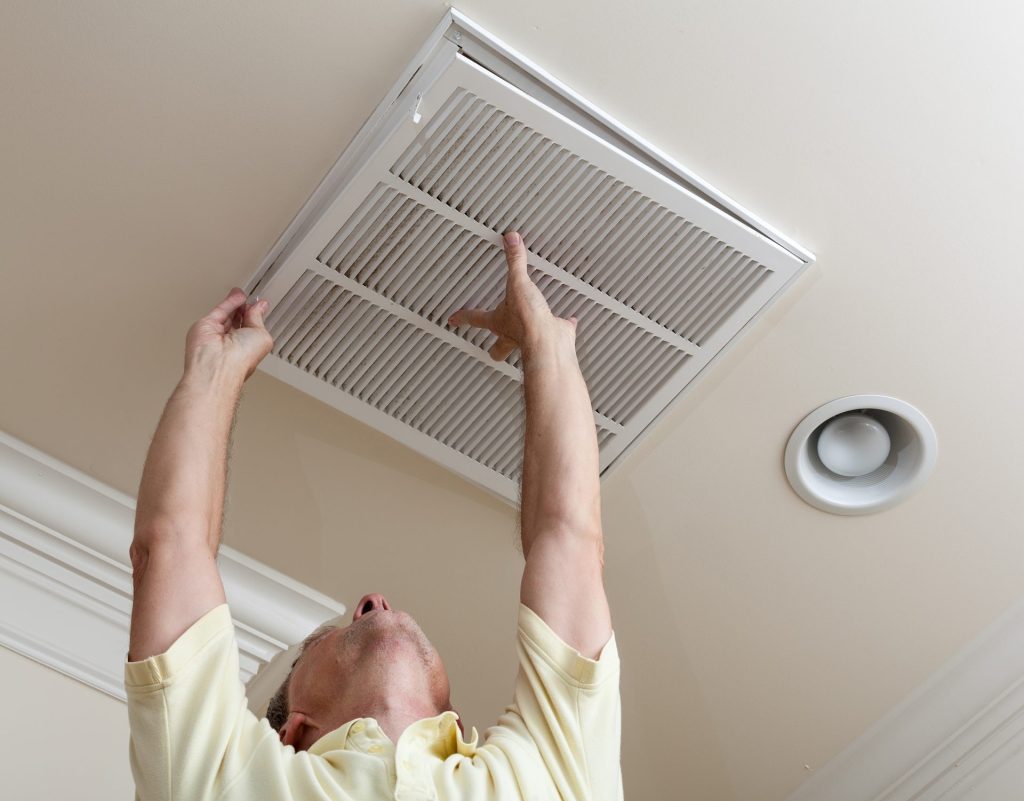
Routinely, maintenance visits are scheduled for two times a year, pre-winter and pre-summer, but this will all depend on the specifics of your agreement. Factors that are taken into consideration are operating conditions, type and age of equipment, and usage requirements.
A PMA can save you money in a number of ways. One of the biggest benefits of a PMA is that it can help catch problems early, before they turn into expensive repairs or replacements. Regular maintenance visits from a technician will allow them to inspect your system for any potential issues and make sure it is running as efficiently as possible.
In order to improve air quality, it is important to have regularly cleaned and/or replaced HVAC filters and coils. Having these will prevent allergens from entering the building and causing health or respiratory problems. Employees will be more comfortable and productive in a healthy environment. To ensure the best air quality, it is recommended to have routine inspection of the HVAC filter system.
In addition to catching problems early, a PMA can also help extend the lifespan of your equipment. By keeping your system running smoothly, you can avoid any unexpected downtime and keep it working properly for years to come.
Finally, having a PMA in place can save you money on your energy bills. Because your system will be running more efficiently, it won’t have to work as hard to maintain comfortable temperatures in your home. This can lead to lower energy usage and cost over time.
The benefits of having a preventive maintenance agreement are clear. By catching problems early, you can avoid expensive repairs or replacements, extend the lifespan of your equipment, and save money on your energy bills. If you’re ready to enjoy the peace of mind that comes with having a preventive maintenance agreement in place, contact a trusted contractor from All Things HVAC today to get started. They’ll be happy to answer any questions you have and help you get started.
The Average Lifespan of an HVAC System: What You Need to Know to Make It Last Longer
Your HVAC system is one of the most important pieces of equipment in your home. Not only does it keep you comfortable all year long, but it also helps to keep your energy costs down. That’s why it’s so important to make sure that you take care of your HVAC system and do everything you can to make it last as long as possible. In this blog post, we will discuss the average lifespan of an HVAC system, some things that you can do to help make it last longer, and how to know when it’s time to replace your old system.
The average lifespan of an HVAC system is around 15-20 years. However, there are a few things that you can do to help make it last even longer. One thing you can do is to have your HVAC system serviced regularly. This will help to keep it running smoothly and prevent any major issues from developing. Another thing you can do is to make sure that your home is well-insulated. This will help to keep your energy costs down and also prevent your HVAC system from working overtime. Finally, you can invest in a quality air filter. This will help to keep the air in your home clean and free of allergens and other contaminants.
What are some signs that it’s time to replace your HVAC system?
If your HVAC system is 15 years old or older, it’s probably time to begin considering having it replaced. Additionally, if you notice that your energy bills are increasing even though you’re not using your HVAC system any more than usual, this could be a sign that it’s time to put in a one. Finally, if your home isn’t as comfortable as it used to be, even after adjusting the thermostat, this could also indicate that your HVAC system needs to be replaced. Should you notice any of these signs, be sure to contact a professional HVAC service company for help. They will be able to assess your HVAC system and let you know if it needs to be replaced or not.
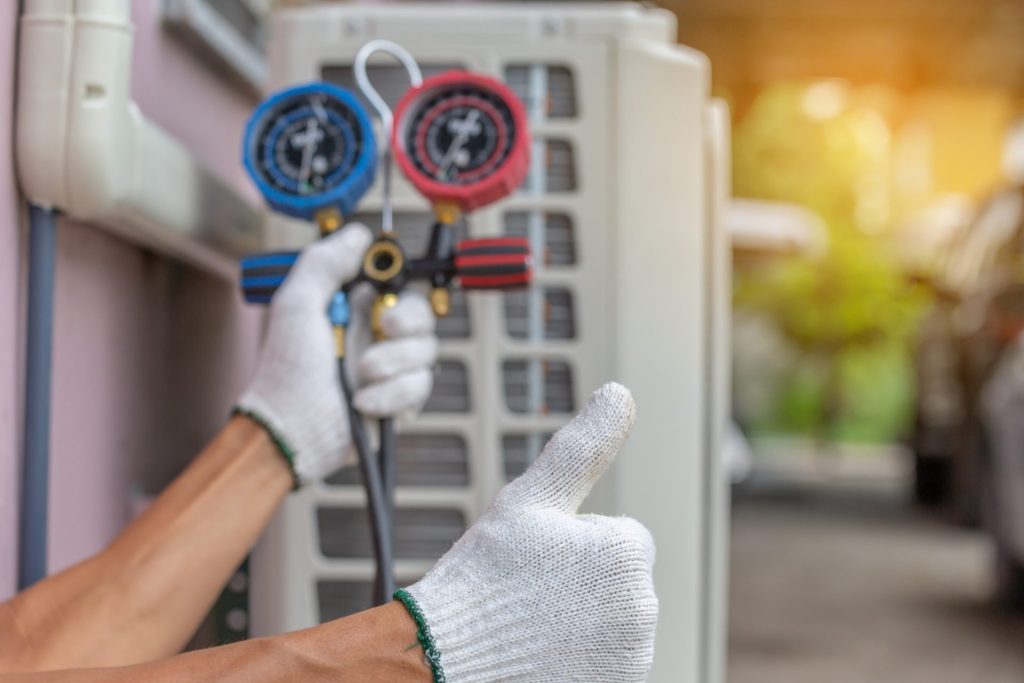
By following these tips, you may be able to help extend the lifespan of your Heating/Ventilation/Air-Conditioning system. Additionally, you can also help to keep your energy costs down and ensure that your home is always comfortable. So, don’t wait, start taking care of your HVAC system today!
How UV Lights Work in an HVAC System: The Science Behind Them
UV lights are an important part of many HVAC systems. But what are they, and how do they work? In this blog post, we will discuss the science behind using UV lights with an HVAC system. We will answer some common questions about these lights, such as “What is the difference between germicidal and UVC light?” and “How do UV lights help improve air quality?” Stay tuned for more information about UV lights in HVAC systems!
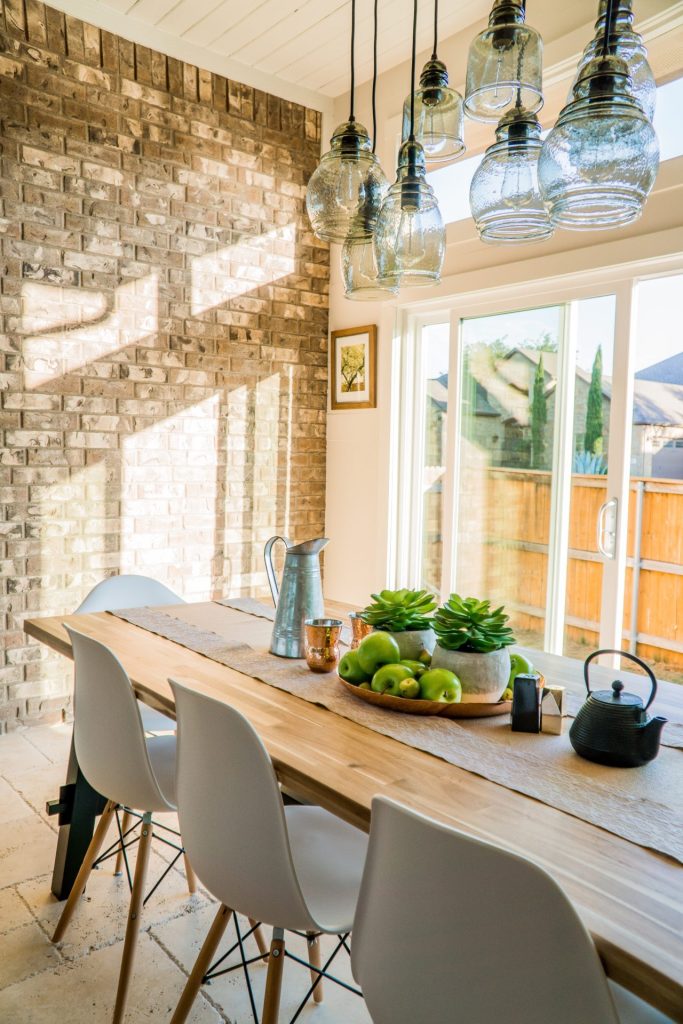
UV lights are a type of light that is invisible to the human eye. These lights emit ultraviolet radiation, which is harmful to many types of viruses and also bacteria. UV lights are commonly used in hospitals and other medical settings to sterilize equipment and surfaces. Germicidal UV lights are a type of UV light that is specifically designed to kill 99% of viruses and most bacteria. UVC lights are a type of germicidal UV light that is often used in HVAC systems.
If you suffer from allergies, asthma, or other respiratory issues, then you know how important it is to have clean air in your home. But did you know that the air in your home can be full of viruses, bacteria, and other pollutants? These contaminants can come from many sources, such as pets, cooking, and even your HVAC system. Thankfully, there are ways to improve the air quality in your home. One way is by using UV lights in your HVAC system.
In an HVAC system, UV lights are typically installed in the ductwork or in the air handler unit. The ultraviolet radiation from these lights kills or damages the DNA of bacteria and viruses, rendering them unable to reproduce. This helps to reduce the amount of these contaminants in the air, which can improve indoor air quality.
As you can see, UV lights play an important role in many HVAC systems. If you are looking for a way to improve the air quality in your home or business, then consider having UV lights installed in your HVAC system. If you have any questions about UV lights in HVAC systems, or if you would like to learn more about how they work, please contact us today! We would be happy to answer any of your questions and help you find the right solution for your home or business. We hope this blog post has been helpful. Thanks for reading!
How To Improve Airflow On A Home’s Second Floor
When it comes to the airflow in your home, there is not one solution that fits all. Each room should have an equal and comfortable temperature, regardless of its location in the house. Oftentimes, the second floor of a home can run into issues with airflow. This is where air balancing comes in. Air balancing is the process of adjusting and testing an HVAC system to ensure even airflow throughout the building. In this blog post, we will discuss the basics of air balancing and how you can apply these principles to your own home or business. Stay cool!

The first step in air balancing is to assess the current airflow in your home or office. You can do this by using a temperature gauge or by simply paying attention to how comfortable you feel in each room. Once you have an idea of where the warm and cool spots are, you can begin to make adjustments to your HVAC system.
One of the most common ways to improve airflow is by changing the direction of your ceiling fans. If you have a room that always feels warmer than the others, try reversing the direction of the ceiling fan blades. This will help push warm air up and out of the room, making it feel cooler in no time.
You can also adjust the vents in each room to control the amount of airflow. If a room feels too warm or drafty, try closing the vents partially or opening them up all the way. By playing around with the vents, you can find the perfect balance of airflow for each room in your home.
Finally, if you have an HVAC system with multiple zones, you can use it to your advantage. By adjusting the settings on your thermostat, you can direct more airflow to the rooms that need it most. This is a great way to save energy and money while still keeping everyone in the building comfortable.
It’s important to note that air balancing is not a one-time task – you may need to make occasional adjustments as your home or office changes. For example, if you add new furniture to a room, it can block vents and affect airflow. If you notice a change in your comfort level, simply assess the situation and make the necessary adjustments.
Air balancing may seem like a daunting task, but with a little effort, it can make a world of difference in your home or office. By taking the time to assess your current airflow and making some simple adjustments, you can create a more comfortable environment for everyone. Stay cool this summer with air balancing!